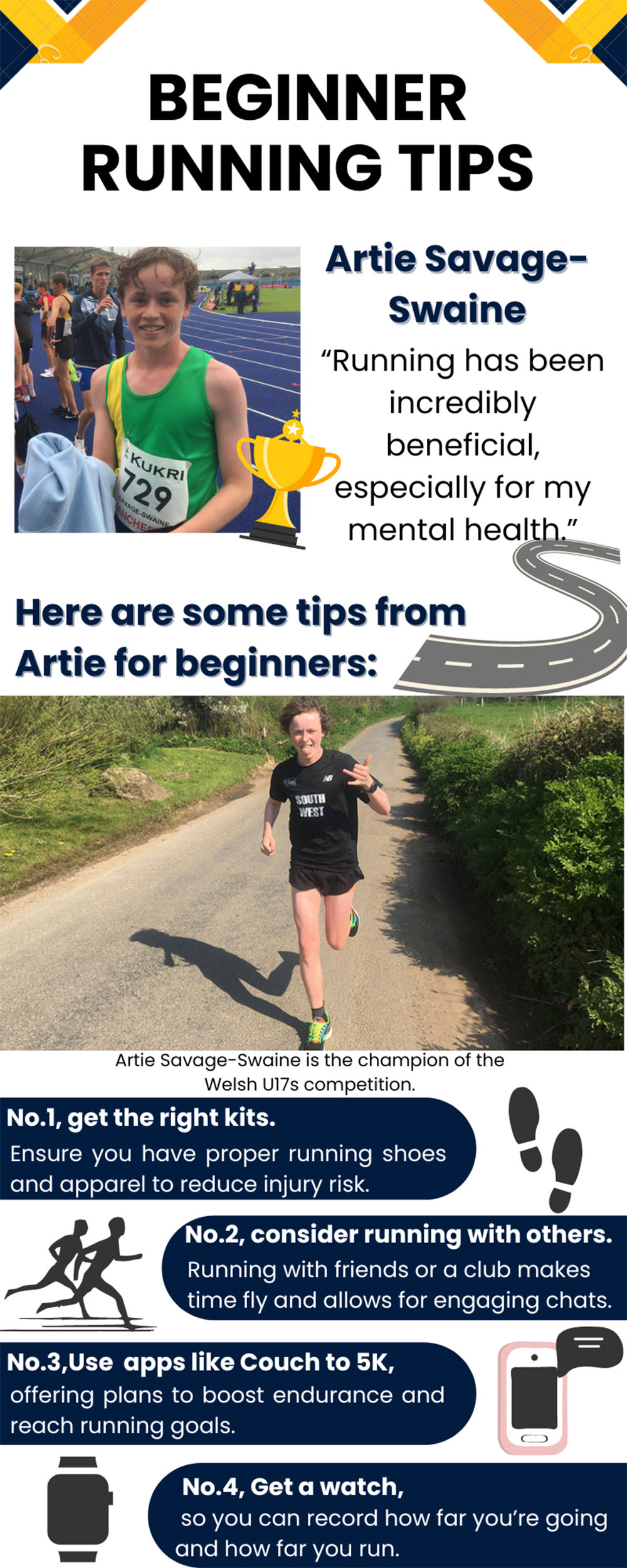More young people than ever before are struggling with their mental health, but one man in Cardiff believes he has found the answer—put your running shoes on.

George Watkin’s first panic attack came from out of nowhere. As a young man, he’d been struggling with depression and had even gone as far as to consider self-harm.
The solution to his problem presented itself almost immediately.
“One winter evening as a teenager, I was sat at home and experienced what I realised later was my first panic attack,” explains George. “I ran out of the house and started jogging around the field where we walked our dog. My mum came with me – we jogged together until the adrenaline subsided and I felt tired enough to stop.”
George’s story of depression is anything but unusual. In 2023, one in five people in England aged between eight to 25 had a probable mental disorder.
Research has shown that running is a simple and cost-effective way to tackle mental health. This is partially due to its ability to increase the secretion of dopamine, a neurotransmitter associated with feelings of pleasure and satisfaction.

“We overlook that all of us are capable of experiencing poor mental health during a difficult time in our lives. This can be triggered by anything from a major life change to a couple of bad nights of sleep,” George said.
“It is better to see your mental health as a thing to be practiced and exercised, like a muscle.”
George is now a seasoned Half Marathon runner and former Mental Health Officer.
“From racing dressed as Santa as a kid to competing on a track, I used to struggle to explain why I’m drawn to running. I just knew that any excuse to put on shoes and leave the house was good enough for me,” George said.

“In my second year at Cardiff University, I took a break from running again due to a difficult period with depression, where I felt suicidal. I managed to get the help I needed from the wellbeing support teams. I felt better equipped to practise my personal wellbeing and do the things that I knew would help me get back on track,” said George.
“On a whim in 2016, I signed up for the Cardiff Half Marathon, and despite being terrified I managed to finish it, which I was over the moon with.”
“The major issue with running is that however much you hate it, you tend to always find yourself coming back. Marathons may be a personal preference.”
“This last year has been the happiest of my running life. My personal bests are coming back gradually, as I feel stronger and stronger.”
When George lost the dog he used to train with last year, it felt like the right time to sign up for the Manchester Marathon.
“For the race, I drew a small tattoo of two dog ears on my wrist to keep me motivated. It certainly helped when I was overtaken in the rain, as we plodded back towards the City Centre, by a guy who juggled for the entire race.”
